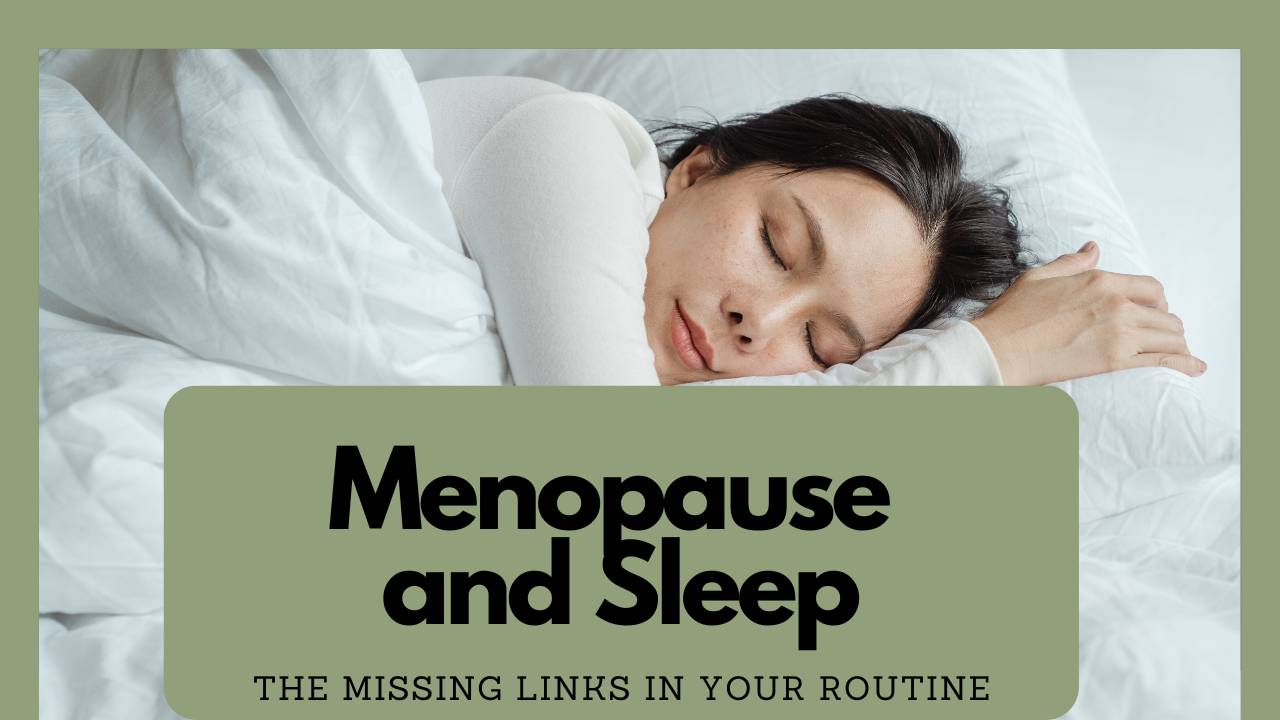Menopause and Sleep: The Missing Links in Your Routine
Aug 04, 2025
If you’re tossing and turning at 2 a.m. and waking up more tired than when you went to bed, you’re not alone.
Sleep disturbances are one of the most common (and frustrating) symptoms of menopause.
Hot flashes. Night sweats. Racing thoughts.
It’s not just about the mattress or bedtime routine anymore.
It’s hormonal. And it’s real.
Why Sleep Gets Harder in Menopause
Your sleep-wake cycle is directly influenced by hormones like estrogen, progesterone, and melatonin. When those levels begin to shift, it can disrupt your body’s natural rhythm.
Estrogen plays a role in keeping your body temperature stable and promoting deep sleep. As it declines, hot flashes and night sweats can become more frequent, waking you up throughout the night.
Progesterone, which has calming effects, also drops in perimenopause, leading to increased anxiety and restlessness.
Melatonin, the hormone that helps you fall asleep, naturally decreases with age, and the hormonal rollercoaster of menopause can make it even harder to produce.
The Missing Links Most People Don’t Talk About
If you’ve already tried the usual advice—cutting caffeine, sticking to a bedtime, lowering screen time—and you’re still struggling, it might be time to look deeper.
Here are a few powerful but often-overlooked connections:
Blood Sugar Swings
Eating high-carb or sugary foods late in the evening can cause blood sugar spikes and crashes overnight, which can jolt you awake. A protein-rich evening snack may help keep things steady.
Cortisol Imbalance
Cortisol is your stress hormone, and it’s supposed to be highest in the morning and lowest at night. In menopause, that pattern can flip, making you wired at bedtime and tired in the morning. Calming evening routines, gentle yoga, and mindful breathing can help reset the rhythm.
Overtraining or Under-Recovering
Exercise is essential, but doing intense workouts late in the day or not giving your body enough recovery time can mess with sleep quality. Try moving high-intensity exercise earlier in the day and saving the evening for stretching or walking.
Low Magnesium or B6 Levels
Both of these nutrients support relaxation and sleep. Many women in midlife are low without realizing it. Including foods like leafy greens, seeds, nuts, and bananas can help support better sleep naturally.
Practical Tweaks That Make a Difference
- Keep your bedroom cool and dark
- Go to bed and wake up at the same time every day
- Create a wind-down routine that includes zero screens and at least 10 minutes of stillness
- Avoid heavy meals, caffeine, and alcohol at least two to three hours before bed
- Try keeping a sleep journal to track patterns and triggers
One Final Thought
Sleep in menopause is not just about getting more hours. It’s about working with your body’s new rhythm. When you identify and address the missing links—like blood sugar balance, cortisol control, and recovery—you start giving your body what it actually needs to rest.
You deserve real rest, not just survival sleep. And yes, it’s possible.
Stay connected with news and updates.
Join our mailing list to receive the latest news and updates from our team.
Don't worry, your information will not be shared.
We hate SPAM. We will never sell your information, for any reason.



